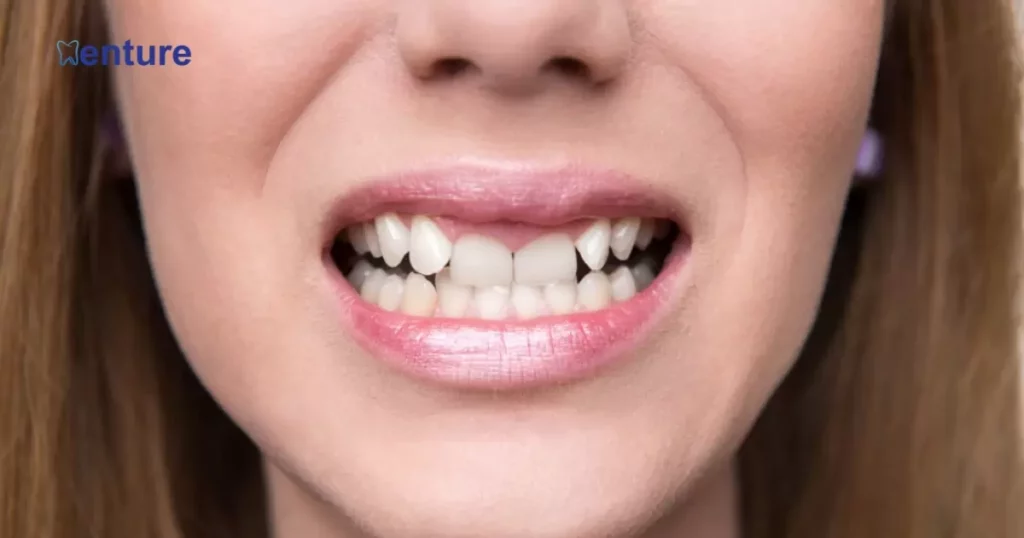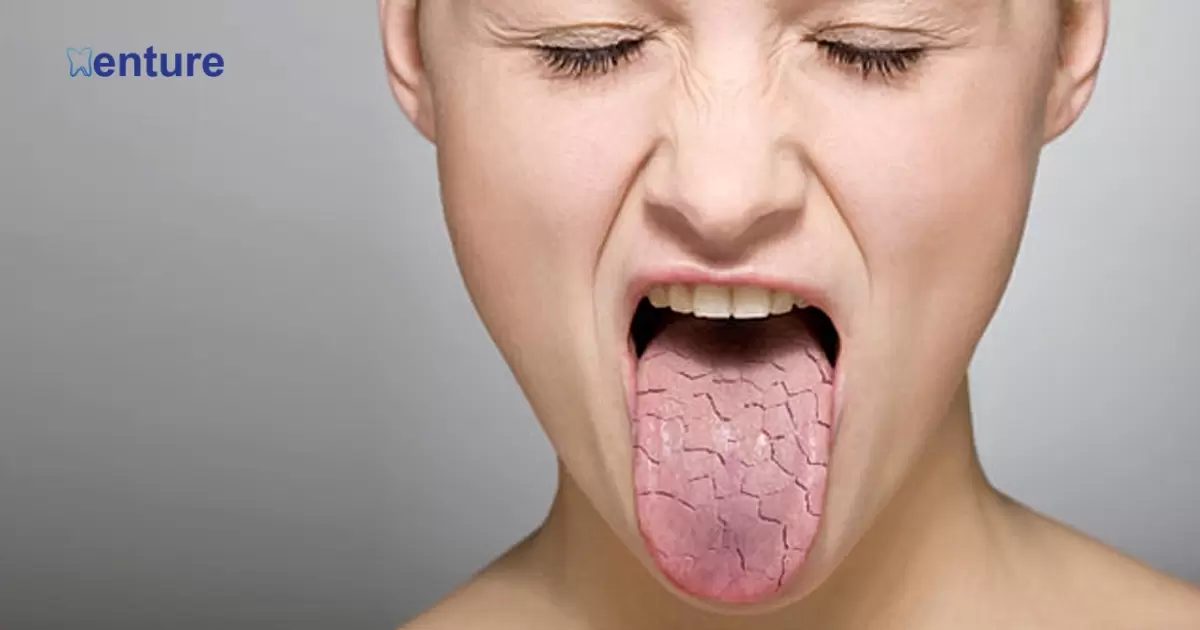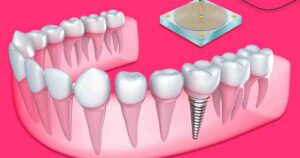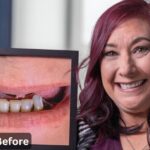If you wear dentures, keeping your mouth from getting dry is crucial. A dry mouth can make speaking and eating uncomfortable. To avoid this, sip water often throughout the day. Chew sugar-free gum or snack on hydrating fruits like watermelon.
No worries; there’s a straightforward fix. Sip water regularly, chewing sugar-free gum, and snack on hydrating fruits like watermelon. Hydration is the key to a comfortable mouth and well-fitting dentures. Bid farewell to discomfort and welcome a smoother denture experience.
Keeping your mouth comfortable with dentures is a breeze. Stay refreshed by sipping water regularly throughout the day. Add in the joy of chewing sugar-free gum, relishing water-rich fruits like watermelon, and eating with partial dentures to enhance your overall dining experience.
The Causes Of Dry Mouth With Dentures
A dry mouth with dentures often stems from insufficient water intake. When the body lacks hydration, the mouth follows suit. Certain medications can contribute to decreased saliva production, intensifying dryness.
Lack of Saliva Production
One of the primary reasons for dry mouth with dentures is the reduced production of saliva. Saliva plays a crucial role in maintaining oral health by lubricating the mouth, aiding in digestion, and preventing tooth decay. When wearing dentures, the natural stimulation to saliva production can be compromised, leading to dryness.
Denture Material and Fit
The material and fit of dentures can also contribute to dry mouth. Ill-fitting dentures can cause friction against the oral tissues, leading to irritation and reduced saliva flow. Certain denture materials may contribute to a dry sensation.
Tips to Combat Dry Mouth with Dentures

Dry mouth can be a common issue for denture wearers, and it can lead to discomfort, difficulty speaking, and potential oral health issues. Here are some tips to help combat dry mouth with dentures:
- Drink plenty of water throughout the day to help keep your mouth moist. Sipping water regularly can help combat dryness.
- Consider using a humidifier in your bedroom, especially at night. This can add moisture to the air and help alleviate dry mouth.
- Caffeine and alcohol can contribute to dehydration, so try to limit your intake. If you do consume these beverages, make sure to drink water alongside them.
- Chewing sugar-free gum or sucking on sugar-free candy can stimulate saliva production and help keep your mouth moist. Choose products sweetened with xylitol, as it may also help prevent tooth decay.
- Maintain good oral hygiene by brushing your gums, tongue, and the roof of your mouth with a soft toothbrush. This can help remove debris and stimulate saliva flow.
- There are over-the-counter saliva substitutes available that can help provide moisture to your mouth. These products often come in the form of sprays, gels, or lozenges.
- Rinse your mouth with a solution of baking soda and water. Mix about half a teaspoon of baking soda in a glass of water and use it as a mouthwash. This can help neutralize acids and promote a more alkaline environment in your mouth.
Always consult with your dentist or healthcare professional if you are experiencing persistent dry mouth issues. They can provide personalized advice based on your specific situation.
Lifestyle Changes for Alleviating Dry Mouth
Adjusting your lifestyle can make a big difference. Start by sipping water regularly throughout the day. Chewing sugar-free gum and indulging in water-rich fruits like watermelon adds an extra layer of relief.
Limit caffeine and alcohol intake, as they can contribute to dryness. Opt for a humidifier in your room for added moisture. These simple lifestyle tweaks can go a long way in alleviating dry mouth discomfort.
When to Seek Professional Help
If your dry mouth persists despite trying these strategies, it’s crucial to consult with your dentist. They can assess your oral health, evaluate the fit of your dentures, and recommend interventions or treatments to address the underlying causes of dry mouth.
Denture Adhesive For Dry Mouth
Ensure a secure fit and combat dry mouth with denture adhesive. Apply a thin layer to your dentures for added comfort throughout the day. This adhesive not only keeps your dentures in place but also alleviates the discomfort of a dry mouth, letting you go about your day with ease.
Say goodbye to uneasy moments with dentures. A small amount of denture adhesive goes a long way in preventing dry mouth troubles. Forming a reliable bond ensures a snug fit, granting you the confidence to enjoy your meals and conversations without the distraction of discomfort.
Why Is My Mouth So Dry Wearing Dentures?

Reduced saliva flow is often caused by dentures covering the roof of the mouth. But worry not; it’s an easy fix. Keep yourself hydrated with regular sips of water, chew on sugar-free gum, and snack on water-rich fruits. This trio ensures a more comfortable experience with your dentures.
Lack of moisture can lead to discomfort, affecting your ability to speak and eat with ease. Dentures, by covering the palate, may contribute to reduced saliva production, leaving your mouth feeling dry.
Frequently Asked Questions
How do you fix dry dentures?
To fix dry dentures, keep it simple. Stay hydrated by sipping water regularly. Chew on sugar-free gum, and snack on water-rich fruits like watermelon.
How do you relax your mouth with dentures?
To ease your mouth with dentures, it’s simple. Stay hydrated by sipping water regularly throughout the day.
How do you get rid of excess saliva with dentures?
Excess saliva with dentures can be bothersome, but there are simple solutions. First, ensure your dentures fit well; an improper fit may trigger excessive saliva.
Conclusion
Managing dry mouth with dentures is about simple, daily habits. Sipping water and choosing hydrating snacks will keep your mouth comfortable. The key is maintaining good hydration for both overall health and denture comfort.
The discomfort of a dry mouth is a common hurdle, but not insurmountable. By adopting these easy practices, such as regular hydration, gum-chewing, and choosing water-rich foods, you can significantly enhance your denture-wearing journey and stop dry mouth with dentures.











